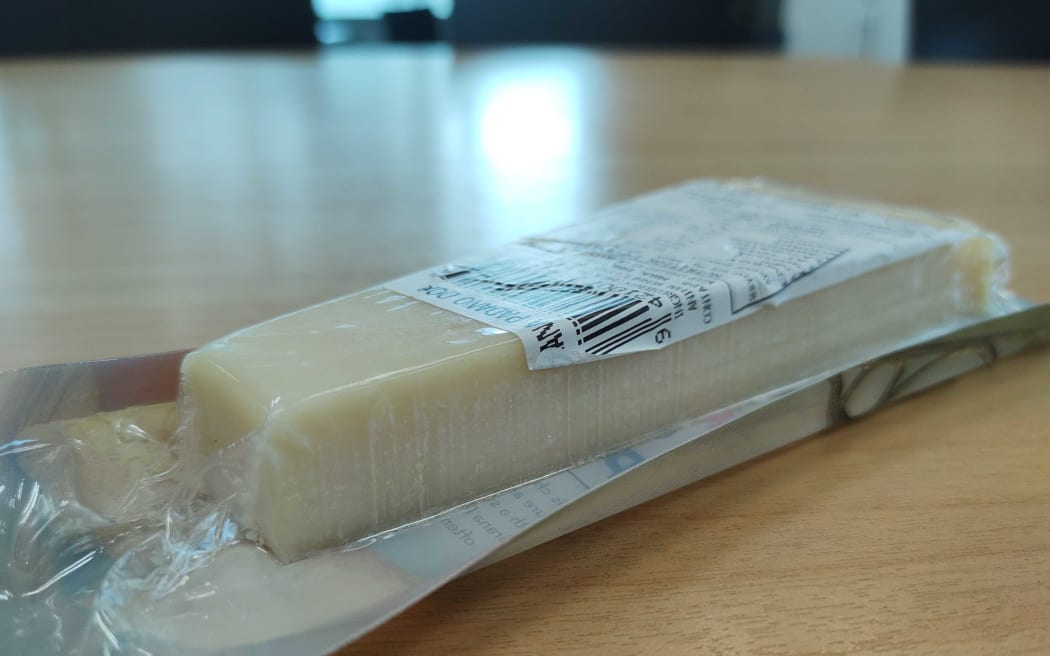
A generic image of cheese that probably was not left in a car for nearly two full days. Photo: 123RF
First person - Mornings are hard enough, but my Wednesday got worse when I found a 150 gram block of hard Italian cheese stuck in the back of my car boot, one day, 11 hours, and 55 minutes after leaving the supermarket where I bought it.
I immediately found myself stubbornly stuck in denial, the first of the famed five stages of grief. Surely it wouldn't be too bad, maybe I could still eat it?
Full of hope (and perhaps a bit of stubbornness - it cost $10) I decided to ask cheese expert James Thomas to see if I really had to throw it out.
Thomas made it clear to me he was no expert in food safety, just cheese, but he would happily eat it.
"Grana Padano is a style of cheese that's 500 or 600, maybe 1000 years old. These are cheeses that were invented or created regionally for the very reason that there was no refrigeration."
Question is, was this cheese invented to be left in a hot car while I happily went and lived my life unaware of the misfortune befalling me?
Thomas said the car did change things.
"That's when you're starting to get to the sort of physical chemical properties. It depends how it's packaged; you can get sweating, you can get oiling," Thomas said.

Cheese that definitely did spend almost two full days in a car. Photo: RNZ/Katie Fitzgerald
I pressed Thomas about other kinds of cheese too. What about a brie, or a camembert? I'm not about to leave it in my car, but what if it's on a cheese board for a little bit?
Thomas said a room temperature cheese could often taste better and have a better texture, but soft cheeses lasted a shorter time than harder cheeses.
It was at this point of the conversation where the "p" word came up - pathogens. Thomas said room temperature cheese was tasty, and he was willing to eat it outside the fridge until he did not want it anymore, but pathogenic bacteria is another story.
Feeling like I need to talk to a food safety expert, I called Ministry for Primary Industries' Vincent Arbuckle, and had a conversation I later summarised to a co-worker as: "I cannot stress this enough, please do not eat that cheese".
"You've left it in an uncontrolled environment, you said a car, which is often a super-heated environment," Arbuckle said.
"That's really going to encourage the growth of bacteria. The definite advice in that situation, with no question you would be best to exercise caution and to throw it away."
Arbuckle was at pains to point out that a litany of bad bacteria could be found in food you left out of a fridge for too long.
His example items - defrosting mince left out on the bench, a meat pie left in the car, or my sadly forgotten cheese - could host e-coli, salmonella, and listeria.
From about 6 degrees Celsius that bacteria will multiply, and it will keep multiplying until the food reaches 60 degrees.
E-Coli can make you vomit for up to 10 days, and it can take up to nine days before you start showing symptoms.
Salmonella is a similar story, six to 72 hours to get sick and then potentially 10 days of diarrhoea, vomiting, and fever.
Listeria, which is found in cheese, is even nastier.
"The risk there is getting listeriosis. The symptoms of listeriosis are things like fever and muscle aches, headaches, stiff neck, confusion, loss of balance, even convulsion.
"During pregnancy listeriosis is really serious. That can result in stillbirth, in miscarriages."
Suddenly my fun "can I eat the cheese?" story was less fun.
Arbuckle drove the point home that all these illnesses, while they may ruin a few weeks for somebody with no compromising conditions like me, were another story for others.
If you're elderly, pregnant, or have a condition that makes your immune system vulnerable, food-borne illness could be potentially life-threatening.
"We are talking potentially for those at-risk consumers really, really serious consequences. It's not funny," Arbuckle said.
"People sometimes think of it as a dose of diarrhoea and it comes right. One true food poisoning will last several days and is very nasty, and if you are in that vulnerable group, it can have some very dire consequences."
Arbuckle's recommendation was to aim for no more than 30 minutes at room temperature for a product that is intended to be refrigerated, depending on the temperature of the room.
He said to do your best to avoid letting food sit in that 6 to 60 degrees temperature range.
For me, considering the fact I have several things to do over the next two weeks that would be very much derailed by a bout of listeria, I decided it was best to steer clear.




